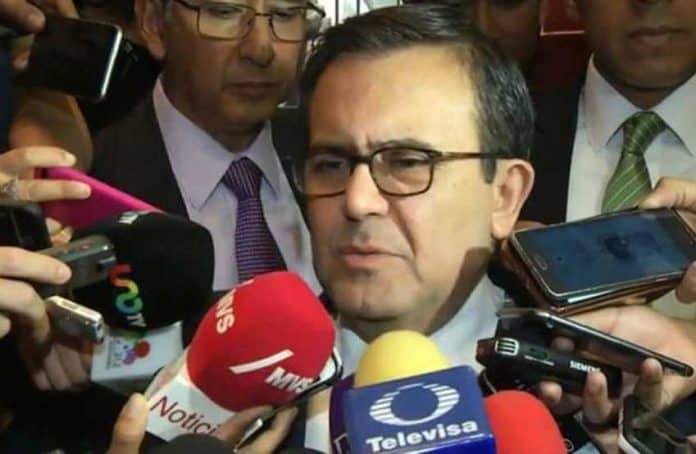Trade talks between Mexico and the United States will continue next week as new sticking points have surfaced over U.S. President Donald Trump’s threat to impose tariffs on Mexican-made vehicles.
Officials from both countries have been meeting in Washington D.C. for the past three weeks to try to iron out their differences over bilateral issues before Canada retakes its place in negotiations for a new North American Free Trade Agreement (NAFTA).
Automotive industry officials with knowledge of the talks told the news agency Reuters that the Trump administration wants the capacity to enforce national security tariffs on future production from new auto assembly and parts plants in Mexico.
The officials said United States negotiators had essentially agreed that existing automotive plants in Mexico would be exempt from any “Section 232” tariffs that Trump may impose but they don’t want to extend the same guarantee to new plants.
The United States imposed tariffs on Mexican and Canadian steel and aluminum on national security grounds effective June 1, while at Trump’s direction the U.S. Commerce Department in May launched an investigation into whether vehicle imports pose a national security risk.
White House officials and United States congressional aides have said that both the metal tariffs and the auto probe are in part aimed at winning concessions in the ongoing NAFTA renegotiation process.
Ildefonso Guajardo, Mexico’s Secretary of Economy and lead NAFTA negotiator, said yesterday in Washington that “a lot of progress” had been made over the past three weeks of discussions and that a deal was still possible by the end of the month.
However, he acknowledged that “we still have a lot of work to do.”
Asked about progress on rules of origin for the automotive sector, Guajardo said “nothing is closed until everything is closed but there are items in every element that are being discussed.”
Once bilateral issues between Mexico and the United States have been resolved, Canada will rejoin the talks, he said, adding that could take place in “the next few days or weeks.”
Industry officials said the United States had barely softened its stance of wanting 75% regional content in order for a vehicle to be afforded tariff-free status while it is also pushing for 40% to 45% of content to come from high-wage areas, which would currently exclude Mexico.
However, Guajardo last week publicly accepted for the first time the United States’ proposal to include set minimum wages for the auto industry in a new NAFTA deal.
Auto industry officials said that Mexico sought reassurances that new content rules would not lead to the loss of existing facilities and jobs.
Another contentious issue — the so-called sunset clause that would see the trade pact automatically expire after five years if it is not renegotiated — has not been raised during the current talks and will be left until the end of negotiations, Guajardo said.
Both Mexico and Canada are opposed to its inclusion in a modernized version of the 24-year-old agreement.
Trump, who has called NAFTA “the worst trade deal ever” and repeatedly threatened to terminate it, wrote on Twitter yesterday that the “deal with Mexico is coming along nicely,” adding that “autoworkers and farmers must be taken care of or there will be no deal.”
He also wrote that president-elect Andrés Manuel López Obrador “has been an absolute gentleman.”
Jesús Seade, whom López Obrador has tapped to be his chief trade negotiator, has also been in the United States capital for the trade talks.
Trump concluded his tweet by declaring that “Canada must wait. Their tariffs and trade barriers are far too high. Will tax cars if we can’t make a deal.”
Trump has previously floated the possibility that the United States could seek separate trade deals with both its neighbors but reaching a new agreement with Mexico and Canada that is favorable to the U.S. could work to his benefit at the upcoming midterm elections in November.
In a July 20 letter to López Obrador, Trump wrote that he believed that a successful renegotiation of NAFTA will lead to more jobs and higher wages in both Mexico and the United States before adding “but only if it can go quickly, because otherwise I must go a very different route.”
The Mexican government is also eager to reach a deal before President Enrique Peña Nieto leaves office at the end of November.
Source: Reuters (sp)
